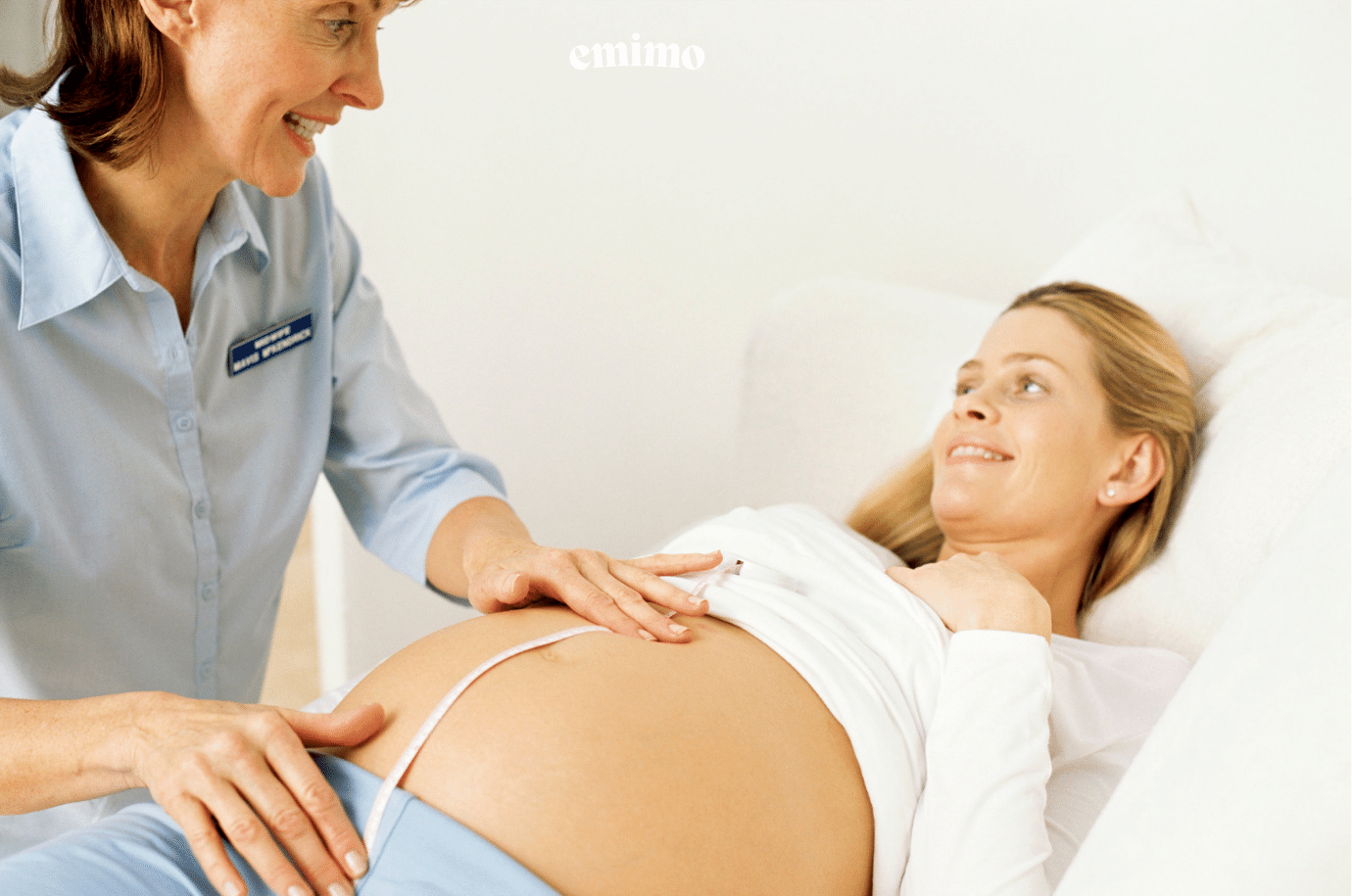-
By: emimo
-
March 8, 2024
Guide to Baby Movements During Pregnancy
Pregnancy is a profound and transformative journey, marked by numerous milestones and moments of wonder. Among these, feeling your baby’s movements for the first time stands out as a particularly magical experience. These movements, known as fetal movements, offer a tangible connection between mother and child, providing insights into the baby’s health and development. In this comprehensive guide, we will explore the intricacies of baby movements during pregnancy, from their significance and patterns to monitoring techniques and common concerns. By understanding and celebrating these movements, expectant mothers can navigate their pregnancy journey with confidence and joy.
Understanding Baby Movements:
Baby movements, also referred to as fetal movements, are the physical sensations experienced by expectant mothers as their baby grows and develops in the womb. These movements are a vital sign of the baby’s well-being and are indicative of their neurological development. Fetal movements encompass a wide range of sensations, from gentle flutters to vigorous kicks and rolls, each providing valuable insights into the baby’s activity and vitality.
Significance of Baby Movements in Pregnancy:
Baby movements serve as an essential indicator of fetal health and well-being throughout pregnancy. Regular and active movements are typically associated with a healthy, thriving baby, while changes in movement patterns may signal potential concerns that require medical attention. By paying attention to their baby’s movements, expectant mothers can play an active role in monitoring their pregnancy and ensuring the best possible outcome for both themselves and their baby.
Factors Influencing Baby Movements:
Several factors can influence the frequency and intensity of baby movements during pregnancy:
- Gestational Age: Fetal movements become more perceptible as the pregnancy progresses, with distinct patterns emerging in each trimester. In the early stages, movements may be subtle and infrequent, while they become more pronounced and regular in the later stages.
- Maternal Activity: Maternal activity levels can impact fetal movements, with increased movement often observed following meals or periods of physical activity. Resting or lying down may also elicit more noticeable movements from the baby.
- Fetal Position: The position of the fetus within the womb can affect the perception of fetal movements. As the baby grows, its position may change, influencing the location and intensity of movements felt by the mother.
- Placental Location: The location of the placenta, whether anterior or posterior, can also impact the perception of fetal movements. An anterior placenta may cushion or dampen movements, making them less noticeable to the mother.
Monitoring Baby Movements:
Monitoring baby movements is an essential aspect of prenatal care, providing valuable insights into the baby’s health and well-being. Expectant mothers are encouraged to perform regular kick counts, typically in the third trimester, to assess fetal activity levels. Kick counts involve tracking the number of fetal movements within a specified time frame, offering reassurance and peace of mind.
When to Seek Medical Attention:
While variations in fetal movement are normal, certain signs may indicate underlying concerns that require prompt medical evaluation:
- Decreased Fetal Movement: A noticeable decrease in fetal movement, particularly in the later stages of pregnancy, may indicate fetal distress or compromised oxygenation. If a mother notices a significant decrease in her baby’s movements or if movements cease altogether, she should seek immediate medical attention for evaluation.
- Changes in Movement Patterns: Any significant changes in the frequency, intensity, or nature of fetal movements should be promptly reported to a healthcare provider for further assessment. These changes may include sudden bursts of activity, prolonged periods of reduced movement, or alterations in the quality of movements felt by the mother.
- Absence of Fetal Movements: The absence of fetal movements for an extended period, especially after performing kick counts or following periods of maternal rest, warrants immediate medical attention to rule out fetal compromise. While occasional periods of quietness are normal, prolonged absence of movements may indicate a potential problem that requires investigation.
Celebrating Baby Movements:
Feeling your baby’s movements is a precious and joyous experience that deserves to be celebrated. Each flutter, kick, and roll is a reminder of the miracle of life growing within. Take time to cherish these moments, bond with your baby, and revel in the journey of pregnancy.:
Baby movements during pregnancy are a poignant reminder of the miracle of life unfolding within the womb. Understanding fetal movement patterns, monitoring movements for signs of well-being, and seeking prompt medical attention when necessary are essential aspects of prenatal care. By paying attention to their baby’s movements and taking an active role in their pregnancy, expectant mothers can foster a deeper connection with their unborn child and ensure the optimal health and well-being of both mother and baby throughout the pregnancy journey.
50 Most common FAQs about baby movements during pregnancy by Emimo :
- What are fetal movements?
Answer: Fetal movements, often referred to as baby kicks or flutters, are the sensations expectant mothers feel as their baby moves and grows inside the womb. - When can I expect to feel my baby move for the first time?
Answer: Most women begin to feel their baby’s movements between 18 and 25 weeks of pregnancy, although it can vary based on factors such as fetal position and placental location. - What do baby movements feel like?
Answer: Baby movements can feel like flutters, taps, rolls, kicks, or stretches, varying in intensity and sensation. - How often should I feel my baby move?
Answer: Expectant mothers should feel their baby move regularly throughout the day, with patterns of increased activity and periods of rest. - Can I feel my baby move if I have an anterior placenta?
Answer: Yes, although an anterior placenta may cushion fetal movements, expectant mothers should still feel their baby move regularly. - What factors can influence fetal movements?
Answer: Gestational age, maternal activity levels, fetal position, and placental location can all influence the frequency and intensity of fetal movements. - Are fetal movements an indication of my baby’s health?
Answer: Yes, regular and active fetal movements are typically a sign of a healthy, thriving baby. - What should I do if I’m not feeling my baby move as much as usual?
Answer: If you notice a decrease in your baby’s movements or a significant change in movement patterns, contact your healthcare provider for evaluation. - What positions can my baby be in that affect their movements?
Answer: The baby’s position in the womb, such as head down or breech, can influence the perception and location of fetal movements felt by the mother. - Are there certain times of day when my baby is more active?
Answer: Many mothers notice increased fetal activity in the evening, although babies can be active at any time of day. - Should I count kicks or movements?
Answer: Kick counts involve tracking the number of fetal movements within a specified time frame, typically performed in the third trimester. - How do I perform kick counts?
Answer: Sit quietly and count your baby’s movements, aiming for at least 10 movements within two hours. - What is considered a normal amount of fetal movements?
Answer: Most expectant mothers should feel their baby move at least 10 times within a two-hour period. - Can stress affect my baby’s movements?
Answer: Stress can sometimes affect fetal movements, although regular, healthy movements should still be felt. - Can what I eat or drink affect my baby’s movements?
Answer: Certain foods or beverages may temporarily increase fetal activity, although regular movement patterns should not be significantly affected. - What should I do if I notice a sudden increase in my baby’s movements?
Answer: A sudden increase in fetal movements is usually not cause for concern, but contact your healthcare provider if you have any worries. - What does it mean if I feel a sudden decrease in my baby’s movements?
Answer: A sudden decrease in fetal movements could indicate a potential problem and should be promptly evaluated by a healthcare provider. - Can my baby’s movements tell me if they’re in distress?
Answer: Yes, decreased or altered fetal movements could indicate fetal distress and should be assessed by a healthcare provider. - What do hiccups feel like for the baby?
Answer: Fetal hiccups often feel like rhythmic, repetitive movements, similar to tiny spasms or twitches. - Can I encourage my baby to move?
Answer: Gentle physical activity, such as walking or changing positions, may sometimes encourage fetal movements. - How do I differentiate between my baby’s movements and other sensations in my abdomen?
Answer: Over time, expectant mothers become more adept at recognizing their baby’s movements, which feel distinct from other sensations such as gas or digestion. - What happens if I don’t feel my baby move by a certain gestational age?
Answer: Contact your healthcare provider if you haven’t felt your baby move by 24 weeks of pregnancy for further evaluation. - Can my baby’s movements predict their personality?
Answer: There is no scientific evidence to suggest that fetal movements can predict a baby’s personality. - How does the position of the placenta affect fetal movements?
Answer: An anterior placenta may cushion fetal movements, making them feel less pronounced, although regular movement patterns should still be felt. - Are there any risks associated with decreased fetal movements?
Answer: Decreased fetal movements could indicate potential fetal distress and should be evaluated by a healthcare provider. - Can I monitor my baby’s movements at home?
Answer: Yes, expectant mothers are encouraged to perform kick counts regularly at home, especially in the third trimester. - What should I do if I’m concerned about my baby’s movements?
Answer: Contact your healthcare provider if you have any concerns about your baby’s movements, especially if you notice a significant decrease or change in movement patterns. - How do I know if my baby is moving too much?
Answer: Most cases of increased fetal movements are normal, although contact your healthcare provider if you have any concerns. - Can I use a fetal doppler to monitor my baby’s movements?
Answer: Fetal dopplers are not recommended for routine monitoring of fetal movements and should not replace medical evaluation if you have concerns. - Do baby movements change as labor approaches?
Answer: Yes, fetal movements may change as labor approaches, with some babies becoming more still as they prepare for birth. - What should I do if my baby’s movements feel different than usual?
Answer: Contact your healthcare provider if you notice any significant changes or abnormalities in your baby’s movements. - Can my baby’s movements become painful?
Answer: Fetal movements are typically not painful for expectant mothers, although some vigorous movements may cause discomfort. - How does my baby’s sleep cycle affect their movements?
Answer: Fetal movements may increase during periods of wakefulness and decrease during periods of sleep. - Can fetal movements wake me up at night?
Answer: Yes, fetal movements may sometimes wake expectant mothers up at night, especially as the pregnancy progresses. - Can my partner feel the baby’s movements from the outside?
Answer: Yes, partners may be able to feel the baby’s movements externally, especially as the pregnancy advances. - What does it mean if my baby is constantly moving?
Answer: Increased fetal activity is usually not cause for concern, although contact your healthcare provider if you have any worries. - Can I monitor my baby’s movements while I’m asleep?
Answer: Fetal movements may sometimes wake expectant mothers up at night, although most mothers are not consciously aware of their baby’s movements while asleep. - What should I do if I’m experiencing reduced fetal movements after 28 weeks?
Answer: Contact your healthcare provider immediately if you notice a decrease in fetal movements after 28 weeks, as this could indicate fetal distress. - How does smoking affect my baby’s movements?
Answer: Smoking during pregnancy is associated with decreased fetal movements and other adverse pregnancy outcomes. - Can my baby’s movements indicate if they’re in a breech position?
Answer: Yes, the location and intensity of fetal movements may sometimes indicate if the baby is in a breech position. - Can my baby’s movements indicate if they’re experiencing discomfort?
Answer: Fetal movements are typically not indicative of discomfort, although certain positions or situations may cause temporary changes in movement patterns. - Can fetal movements indicate if my baby is hungry?
Answer: Fetal movements are not directly related to hunger, although some babies may be more active after meals. - How can I differentiate between fetal hiccups and other movements?
Answer: Fetal hiccups often feel like rhythmic, repetitive movements, distinct from other fetal movements such as kicks or rolls. - Can certain medications affect my baby’s movements?
Answer: Some medications may affect fetal movements, although always consult with your healthcare provider before taking any medication during pregnancy. - What is the normal range of baby movements in the third trimester?
Answer: In the third trimester, most expectant mothers should feel their baby move at least 10 times within a two-hour period. - Can my baby’s movements change based on my activity level?
Answer: Yes, maternal activity levels can sometimes influence fetal movements, with increased movement often observed following meals or periods of physical activity. - Can dehydration affect my baby’s movements?
Answer: Dehydration may sometimes affect fetal movements, although regular hydration is important for overall fetal well-being. - Can I use smartphone apps to monitor my baby’s movements?
Answer: There are smartphone apps available for tracking fetal movements, although always consult with your healthcare provider for personalized guidance. - How do baby movements change during multiple pregnancies?
Answer: Fetal movements may feel different during multiple pregnancies due to variations in fetal position and placental location. - Can fetal movements indicate if my baby is active or asleep?
Answer: Yes, fetal movements may sometimes provide clues about the baby’s activity level and sleep patterns.
















Leave a comment